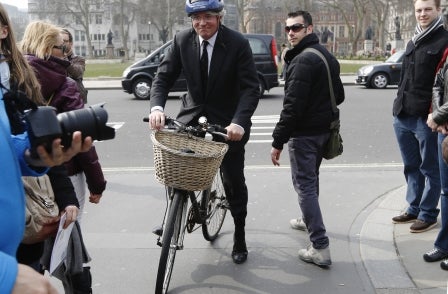
Sun publisher News UK is to ask a Government watchdog how many times police have spied on journalists’ phone records and what guidance he intends to give.
The move comes after the Met Police revealed yesterday that it tracked down two Sun sources on the ‘Plebgate’ story by seizing journalists' telecoms data without the permission of a judge and without giving publishers the opportunity to make representations.
It obtained the mobile phone records of Sun political editor Tom Newton Dunn and a log of calls made to the Sun newsdesk into order to track down and then sack two police officers. Both officers were previously cleared by the Crown Prosecution Service which said it was in the public interest for information about the ‘Plebgate’ incident to come to light.
A Sun spokesman told Press Gazette: “News UK and The Sun were surprised and concerned to learn of this intrusion, which we understand was authorised by a police officer rather than a judge, for the apparent purpose of exposing a whistle-blower who was ultimately shown to have committed no criminal offence.
“We understand this was achieved, without our knowledge, by the use of police powers under the Regulation of Investigatory Powers Act.
“This circumvented the normal safeguards in the Police and Criminal Evidence Act, which was designed to give proper protection to journalists and their sources.
“We will be writing to Lord Justice May, the Interception of Communications Commissioner, to ask him to examine how many times and with what justification these authorisations have been made against the media and whether he intends to issue any guidance on the media’s right to keep their phone records safe.”
The Home Office Code of Practice on use of surveillance under RIPA states that when journalistic material is involved “the matter should be reported to the relevant Commissioner or Inspector during his next inspection and the material be made available to him if requested”.
The police actions to out confidential journalistic sources have been condemned by the National Union of Journalists, Index on Censorship and the Society of Editors.
Press Gazette has asked the Met Police for clarification on how and why it seized journalists’ phone records in order to expose their sources. It is yet to provide a response.
Email pged@pressgazette.co.uk to point out mistakes, provide story tips or send in a letter for publication on our "Letters Page" blog

